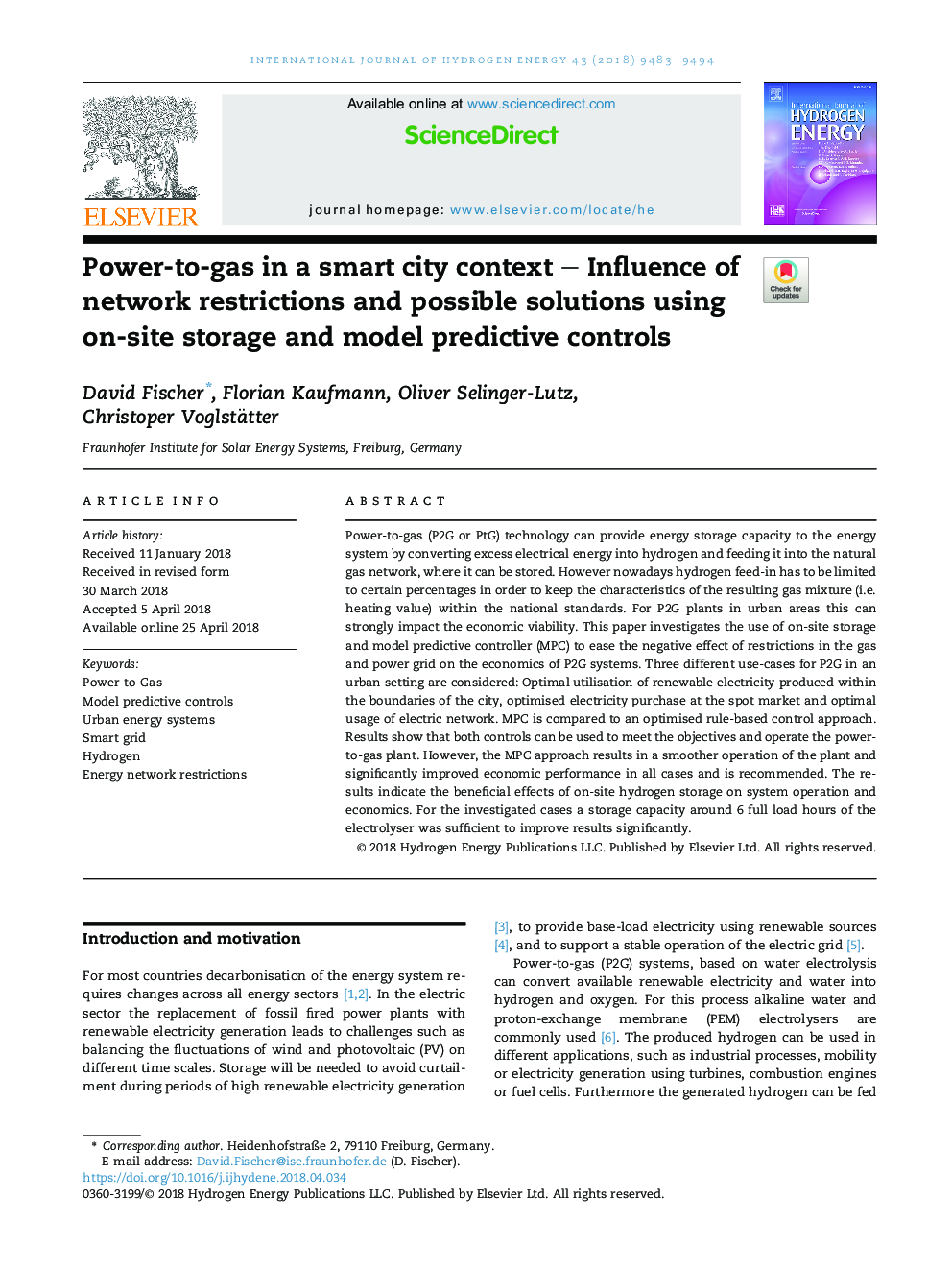| Article ID | Journal | Published Year | Pages | File Type |
|---|---|---|---|---|
| 7706034 | International Journal of Hydrogen Energy | 2018 | 12 Pages |
Abstract
Power-to-gas (P2G or PtG) technology can provide energy storage capacity to the energy system by converting excess electrical energy into hydrogen and feeding it into the natural gas network, where it can be stored. However nowadays hydrogen feed-in has to be limited to certain percentages in order to keep the characteristics of the resulting gas mixture (i.e. heating value) within the national standards. For P2G plants in urban areas this can strongly impact the economic viability. This paper investigates the use of on-site storage and model predictive controller (MPC) to ease the negative effect of restrictions in the gas and power grid on the economics of P2G systems. Three different use-cases for P2G in an urban setting are considered: Optimal utilisation of renewable electricity produced within the boundaries of the city, optimised electricity purchase at the spot market and optimal usage of electric network. MPC is compared to an optimised rule-based control approach. Results show that both controls can be used to meet the objectives and operate the power-to-gas plant. However, the MPC approach results in a smoother operation of the plant and significantly improved economic performance in all cases and is recommended. The results indicate the beneficial effects of on-site hydrogen storage on system operation and economics. For the investigated cases a storage capacity around 6 full load hours of the electrolyser was sufficient to improve results significantly.
Related Topics
Physical Sciences and Engineering
Chemistry
Electrochemistry
Authors
David Fischer, Florian Kaufmann, Oliver Selinger-Lutz, Christoper Voglstätter,
